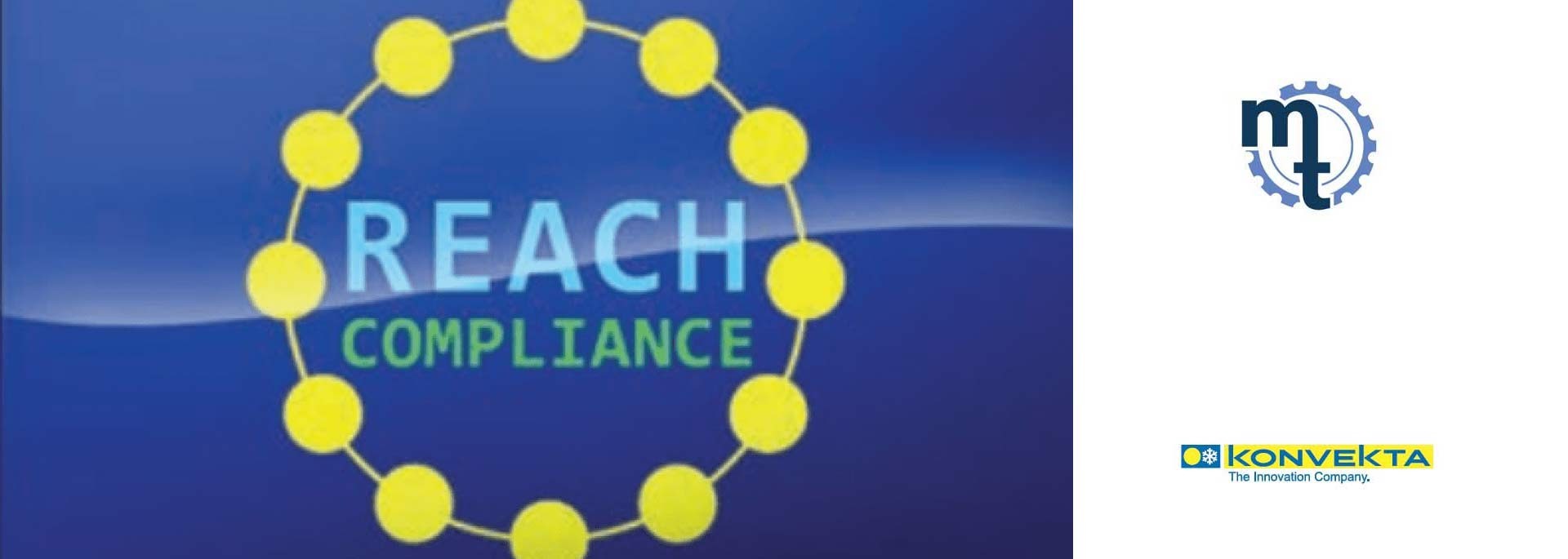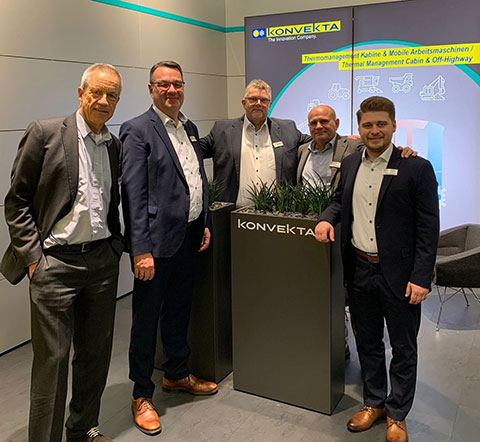
At Agritechnica 2023 we talked about the upcoming EU regulations regarding REACH and regulations on fluorinated gases.
Regulation (EC) No. 1907/2006, so-called REACH, is an integrated regulation for the registration, evaluation and authorization of chemical substances, which aims to ensure a greater level of protection of human health and the environment, while at the same time aspiring to maintain and strengthen the competitiveness and innovative capabilities of the European chemical industry. [ MORE INFO HERE ]
European companies supporting the safe and simplified adoption of natural refrigerants in the refrigeration, air conditioning and heat pump (RACHP) sector have drafted a letter with detailed requests to EU policy makers who will meet to develop the final provisions of the EU F-Gas Regulation.
In this regard, our partner Konvekta has recently presented a 'green productivity' project, a heat pump air conditioning system for electric agricultural vehicles, which bases its operational capacity on the use of the R744 refrigerant gas better known as CO2.

To summarize, here's what the experts at Konvekta are currently experimenting with.
The new F-Gas Regulation aims to further reduce CO2 emissions. This will also affect chemical refrigerants (such as R134a, R1234yf), as these have a global warming potential due to their properties. Today we can assume that the use of F-gases with global warming potential will probably be banned in 2050. Until then, the placing on the market of CO2 equivalents will be gradually reduced by means of available certificates.
The upcoming amendment to the REACH regulation is more far-reaching. The latest draft stipulates that the ban on certain chemicals will in future also include the chemical refrigerants that have been commonly used to date. Outside of the electrified vehicle sector (in particular for passenger transport), the current draft envisages entry into force in 2033. This means that distributors of mobile machinery would have to make their products free of chemical refrigerants, among other things, by then.

The amendment of both ordinances is still in the coordination phase in the bodies involved. These regulations are expected to be adopted in 2024 or 2025. Unfortunately, there is no planning certainty for future product developments before then. But, in the end, both means that the end of chemical refrigerants will be coming, and everybody who is using them today will, sooner or later, have to start to think about alternative concepts.